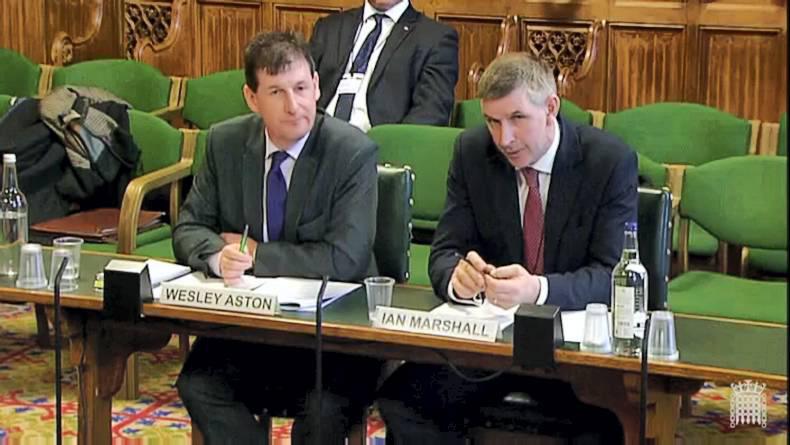Although not advising its 12,000 members on an official position in the Brexit debate, the UFU representatives highlighted to MPs on the Northern Affairs committee in Westminster on Wednesday that a lack of assurances and guarantees at present surrounding farm subsidies and trade agreements means the argument to leave the EU carries little weight.
“We feel it is better, for the minute, given the circumstances and knowledge we have, to stay [in the EU],” Aston said.
It was said that the Brexit issue is divisive among the industry and even in some families. Other elements such as politics and national identity ultimately play a role.
Aston told MPs: “We have a wide range of opinions across our membership and we recognised that already, it is not just solely on economics, there is more to it than that.”
Trade
The importance of market access to the EU for NI as an exporting region was discussed as well as differences between sectors on trade. Aston pointed out that beef and dairy sectors depend on the EU market more than pig and poultry sectors, where British consumers are important customers.
Marshall pointed out that that leaving the EU would not mean a relaxation of regulations for farmers as market access to the EU would depend on meeting production standards.
On the need for the EU to trade with the UK as much as the UK needs to trade with the EU post-Brexit, Marshall pointed out that, being realistic, the remaining 27 member states could go a long way to providing the deficit of food currently showing in UK trade provides.
“So even though trade is important, they are not completely dependent on the UK for their survival, and that is a concern,” he said.
Issues surrounding the trade of livestock across the Irish border as well as the negative impacts of Brexit on the agri food industry in the Republic of Ireland were also mentioned.
Subsidies
Marshall stated that in NI last year, £236m of direct payments was received from the EU, but total farming income was £183m, meaning the industry operated at a loss. Aston pointed out that last year’s example is not uncommon and has been typical, highlighting the importance of farm payments.
“We all have concerns with bureaucracy and red tape that we have to be a part of to receive this support. That said, that support has been invaluable,” he said.
When asked about an ideal “British Agricultural Policy” post-Brexit, Aston said that continued funding to support farmers and a reduction in red tape would be the two important issues.
However, it was pointed out that historically, there have been circumstances where the UK government has had the opportunity to match payments or provide top-ups on EU subsidies to farmers and has chosen not to.
The most recent example could be Monday’s announcement by EU farm commissioner Phil Hogan that annual state aid from individual member states to farmers could increase to €15,000 per farmer. “We certainly do not expect, in the UK context, to see any of it,” Aston commented.
DUP MP Gavin Robinson argued that the £19bn paid into the EU by the UK each year would be better spent than the £10bn that is received back as a net contributor and that post-Brexit, a single agriculture minister would be easier to lobby than 27 other member states.
“If there was £19bn and there was a spend proportionally on agriculture, then the Northern Ireland 3% of that £19bn is bigger than the 3% of £10bn, you accept that?” he said.
Highlighting the lack of assurances and guarantees in the argument to leave, Aston replied: “You said the word if.”






 This is a subscriber-only article
This is a subscriber-only article










SHARING OPTIONS: